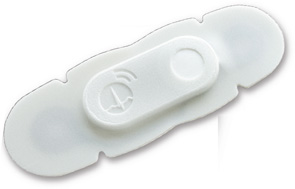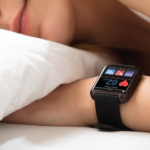
Eric Selvik looks down at his hand and sees his heart. Not literally—but he does see a visual representation of the electrical activity of his heart.
Selvik, vice president of strategic marketing for Vital Connect, a company that develops wearable medical technology, has a HealthPatch MD stuck to his chest. The patch is a device similar to a large Band-Aid, with an ECG lead, a battery and a module that communicates with a smartphone or other Web-enabled device by way of Wifi or a mobile network. It’s geared toward patients with known heart conditions.
Selvik’s phone shows a regular, healthy pattern on his ECG reading, thankfully. He doesn’t have a medical condition requiring heart monitoring, but keeps it on for the sake of his job.
Plus, he says, it’s “just kinda cool.”
Usage Expanding
Wearable cardiac monitoring devices, such as HealthPatch, could become more widely considered in the care of patients with rheumatologic conditions. People with rheumatoid arthritis are at a heightened risk of having a heart attack and heart failure.
HealthPatch MD and BodyGuardian—another FDA-approved cardiac sensor worn as a patch that sticks to the skin—are part of the growing wearable-technology healthcare sector. One research group, Zurich-based Soreon Research, estimates that the $2 billion wearable-medical-device market will explode to a $41 billion industry by 2020.
“Heavy regulation of the healthcare industry and the inherent conservatism of many healthcare professionals will somewhat hinder the adoption of these new technologies,” Soreon researchers wrote in a report last year. “The penetration of smart wearable healthcare technology will take years, even decades in some cases. However, the ubiquity of mobile devices and networks—even in the remotest areas of the world—and consumers’ growing savviness about mobile technology are pushing the adoption of these technological innovations.”
How It Works
HealthPatch MD, developed by Vital Connect, won FDA approval last year for accurately measuring cardiac indicators, such as ECG, heart rate and heart rate variability, as well as clinical-grade respiratory rate measurement, skin temperature, step count, body posture and fall detection.
The device is being used in clinical studies, and more regular clinical use is expected later this year through partnerships, such as its agreement with LifeWatch, a company that offers remote patient monitoring services to doctors. Although HealthPatch MD has received FDA clearance for the monitoring of vital signs, LifeWatch is now pursuing approval for using those metrics to actually make diagnoses.

